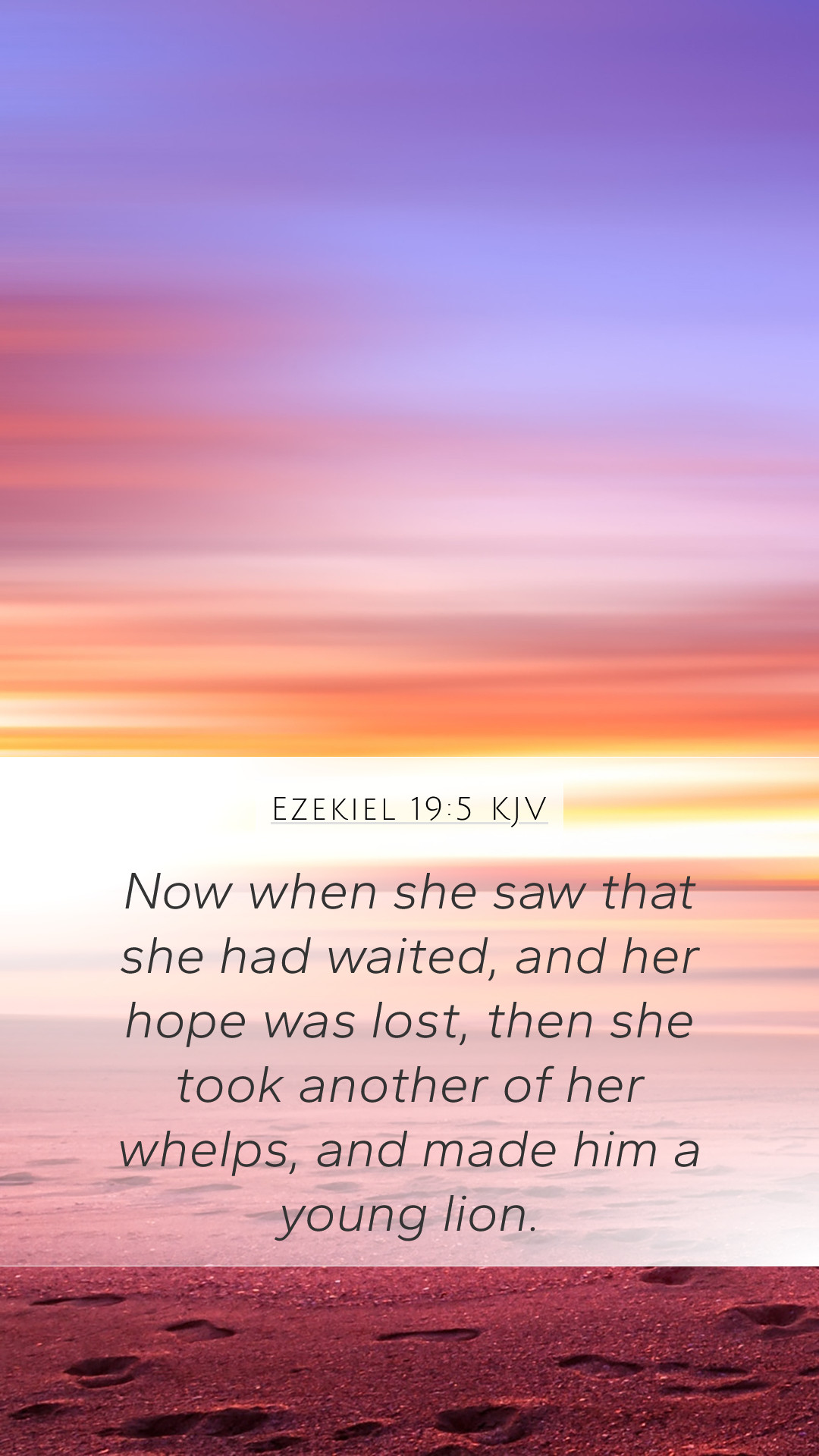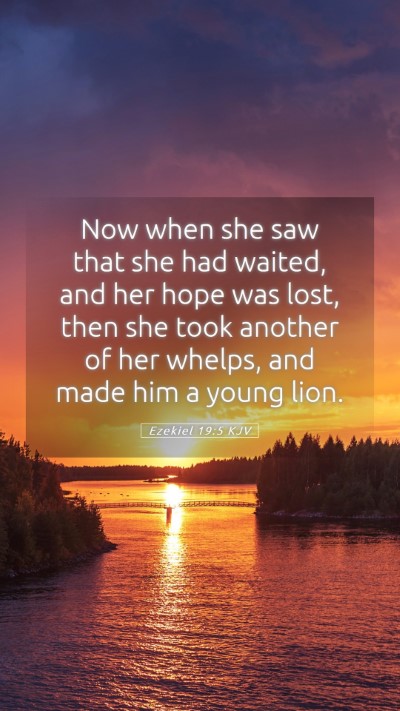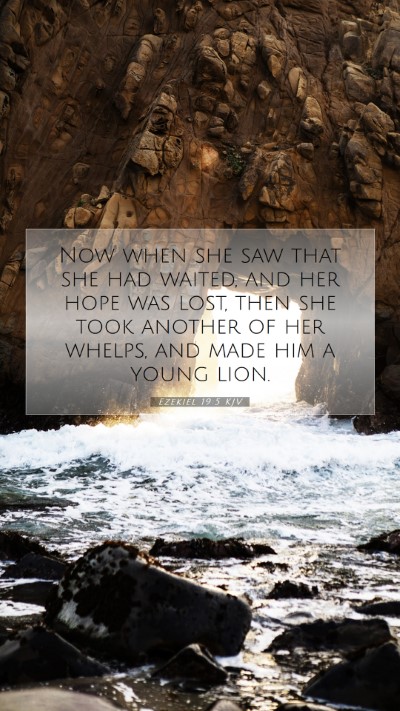Bible Verse Meaning of Ezekiel 19:5
Ezekiel 19:5 states: "When she saw that she waited, and her hope was lost, then she took another of her whelps, and made him a young lion." This verse is rich in metaphorical meaning and applies to the broader narrative of Israel's history and fate.
General Context
The book of Ezekiel is a profound prophetic text that emphasizes the judgment of Israel due to its infidelity and idolatry. Chapter 19 specifically utilizes vivid imagery to symbolize the decline of Israel's regal lineage, particularly during the exile. The imagery of the lion's whelps signifies royal figures, notably those who were yet to fulfill God's covenant promises.
Commentary Insights
- Matthew Henry: Henry interprets this verse as depicting the collapse of royal power in Israel. The lion symbolizes strength and sovereignty, yet the verse illustrates that despite the initial promise of leadership, despair followed as hope was lost. It emphasizes the sovereignty of God over Israel's kings, portraying their eventual downfall.
- Albert Barnes: Barnes presents that "waiting" symbolizes Israel's hope in their political leaders. The loss of hope implies a trust misplaced in these leaders who ultimately led them into ruin. This commentary encourages readers to look beyond earthly leaders and trust God as their ultimate king.
- Adam Clarke: Clarke's analysis focuses on the hope that was lost, which represents the lack of faith amongst the people of Israel. He suggests that the young lion represents new leadership that emerges from a legacy of failure, indicating how quickly circumstances can change for the nation.
Interpretative Themes
The verse conveys themes of:
- Loss and Despair: The imagery of lost hope reflects the emotional and spiritual state of Israel, which had placed their trust in kings rather than God.
- Leadership Failure: By choosing another whelp to symbolize a young lion, the verse indicates the cyclical nature of leadership in Israel that continually failed to deliver the promised hope.
- God's Sovereignty: Even in their despair, God's control over the unfolding events remains paramount, depicting a larger divine narrative at play.
Application of the Verse
This verse can be applied to modern life by reflecting on the leadership we follow and the hopes we place in human figures rather than God. It prompts one to evaluate where true hope lies and inspires faithfulness in God's promises amidst challenging circumstances.
Cross References
Several Bible verses resonate with the themes found in Ezekiel 19:5:
- Lamentations 2:9: Discusses the loss of kingship and hope in Jerusalem.
- Jeremiah 22:10-12: Describes the demise of the royal line.
- Isaiah 11:1: Speaks of the root of Jesse, a rightful king to come, contrasting Israel's failed kings.
Conclusion
Ezekiel 19:5 is not merely a historical account but a declaration of the larger narrative of Israel's failure and God's ultimate plan. Through the combined insights of public domain commentaries, we gather a deeper understanding that fosters greater reflection for Bible study groups and individuals engaging in online Bible study resources. The call is to seek a right understanding of Scripture and establish genuine trust in the eternal King, who provides hope that transcends earthly hardships.


